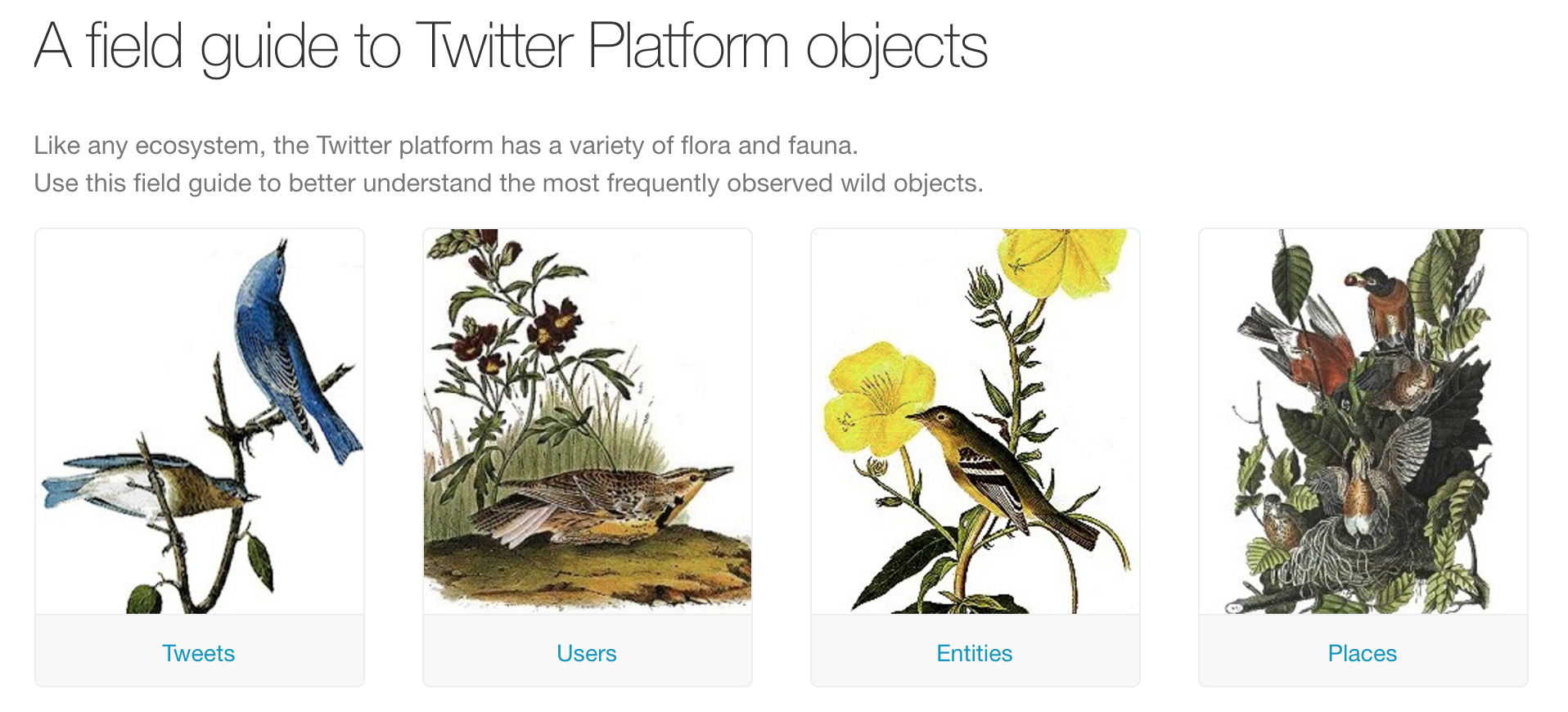
I'm a fan of the human elements of this technological shift that is going on in our world. We tend to focus on the technology, and the dudes who do the technologies (the cyber is HUGE), but what will really matter in 50 or 100 years will be the more human aspects of how we did all of this. Trust me, it is hard to make this boring ass API shit human in any way, so I am always excited when there are people who soften the hard edges of the gears as they grind forward.
One of the moments that has stood out for me in the last decade was the Twitter API Field Guide created by Taylor Singletary (@episod) during his time as an evangelist at Twitter. This field guide was removed by Twitter (not sure when as I just noticed today), but the original blog post remained. Thank the Internet gods for the Internet Archive (and Tyler pointing it out), because a copy of his work still lives on for us all to enjoy.

I wanted to make sure a copy of it lives on beyond Twitter, and the Internet Archive, so I copied (cleaned up) and published on Github (ha). While this work may seem out of date, and irrelevant, it is art and will be something we will look back on fondly in the future--it shouldn't simply be deleted. This is one of the problems with the constant change we have embraced in the tech space--many things we care about will just be deleted and lost forever.
For me, the Twitter Field Guide represents a specific time in the history of the web, and as I write this post I realize this was a dark time for API optimism in the Twitter API ecosystem, something that was having an effect on the wider API movement. I think this field guide was a very creative human response as we are struggling with not just the technical of the Twitter API, but the business and politics of operating an API platform at this scale. While it was just one iteration in the API documentation, it is like that vintage auto industry poster from 1930s and provides us with an important snapshot of this period in time, and should be preserved.
I understand that the documentation is out of date, which is probably why it was taken down, but this reflects what is wrong with technology as our master. It demands that we always march forward, with almost no consideration for human things that exist in the cracks. I do not expect tech companies to maintain everything old, but they should allow for archiving and preservation. I have copied and cleaned up a copy of the Twitter API Field Guide from the Internet Archive, and operating as a Github repository. If you work at Twitter, please don't ask me to take this down--I'm not trying to disrespect the brand or platform, I'm just trying to keep your history alive. Plus I have copies, and I'll just keep putting back up. ;-)
I have talked about the API purgatory museum before, and if there are any API relics you'd like to see preserved feel free to drop me a line, and I'll see what I can do. This stuff may not be important now, but it will in 50, or 100 years.

